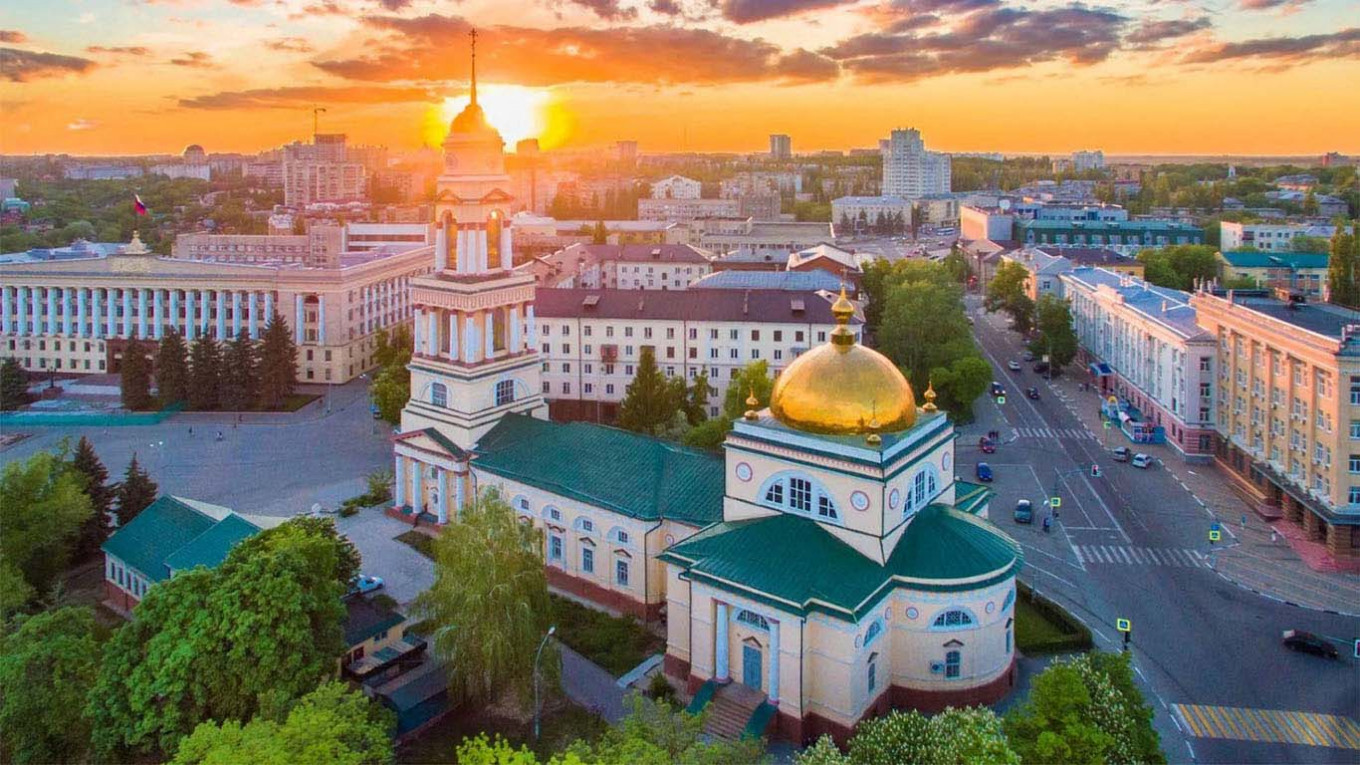Sometimes the most interesting places in Russia are a bit off the beaten path. Case in point: Lipetsk region.
Lipetsk is 465 km from Moscow — almost six hours by car. Although the region is associated with Peter the Great, the writer Ivan Bunin, and other famous historical figures, it is not on the standard tourist routes. That’s good news for travelers: no crowds, no one to disturb you as you admire the splendid architecture of private and public buildings, churches, unique museums, and beautiful nature. However, it is better to travel around the Lipetsk region by car, as many sights are far from bus stations.
Day 1: Lipetsk
Lipetsk is the regional center, and you can’t visit the area without stopping here. One of its main sights is Nizhny Park where Peter the Great discovered a source of mineral water. A new pump room with four drinking fountains was built this year. You can also visit the “Travel Palace of Peter the Great.” The tsar stayed here on the way from Moscow to Voronezh when the Lipetsk factories were being built. Unfortunately, it is not an original building. The palace was burned, but few years ago it was restored, and now it houses a museum of water. Deep in the park you might find a structure of white vertical sail-like slabs connected by a ring — a monument to the revolutionaries. For children, there is a zoo that has already reopened, but if they want to go on rides, you should go to Verhny Park, connected by a path.
One of the nearest cafes is Dom, which is open for take-out. The average cost of a main is 300 rubles ($4).
Restaurant Merzen is open for dining in the main hall and the summer terrace. You can order a business lunch from noon to 4 p.m., and from noon to midnight you can enjoy hot dishes from the grill. Average main is 1700 rubles ($24) but there are many dishes for about 300 rubles ($4).
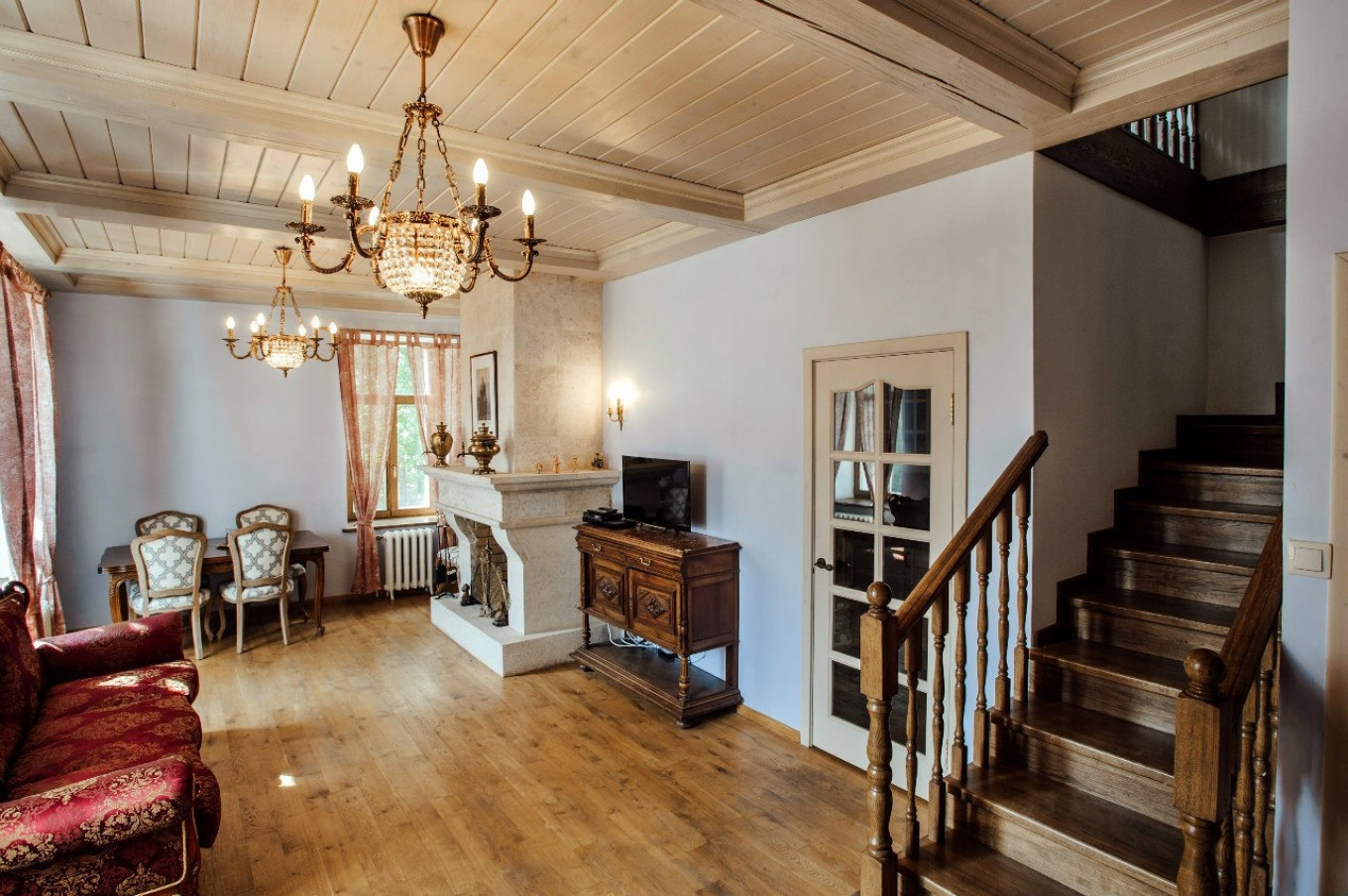
After the park, you might visit the 19th century Skornyakovo-Arkhangelskoye Estate, located in the Skornyakovo village. The oldest instructure the complex is the Archangel Michael Church. Here you can walk along the quiet paths, beautiful ponds and restored buildings, enjoy food and live music at the local restaurant on the summer terrace. There are also guest houses where you can spend the night. Rates per night are from 5,000 rubles to 15,000 rubles ($70-$212).
If you want to stay in the city of Lipetsk, the Sputnik Hotel, which offers beautiful city views. A continental breakfast is served every morning. Room rates per night: 2,000-4,000 rubles ($28-56).
On the territory of the four-star Hotel Laguna there is free secure parking, you can relax in the sauna or have a massage, and then enjoy dinner or a business lunch. The cost of a single room per night is 4,000 rubles ($56); a deluxe room is 8,000 rubles ($113).

Day 2: Zadonsk and Yelets
The next should begin with relaxation. First off: head to the Kudykina Gora amusement park, where you will be greeted by a giant three-headed dragon with burning eyes. If you don’t know what it is, ask your kids, who will immediately recognize Zmei Gorynych from Russian fairytales. The park has a safari park, a medieval fortress, a large playground, boat station and beach. You can rent bikes, camels or a horse and carriage. For a bit more exercise, try kayaking on the Kamenka river. Before leaving the park, have a snack in the local café which is, at present, only open for take-out.
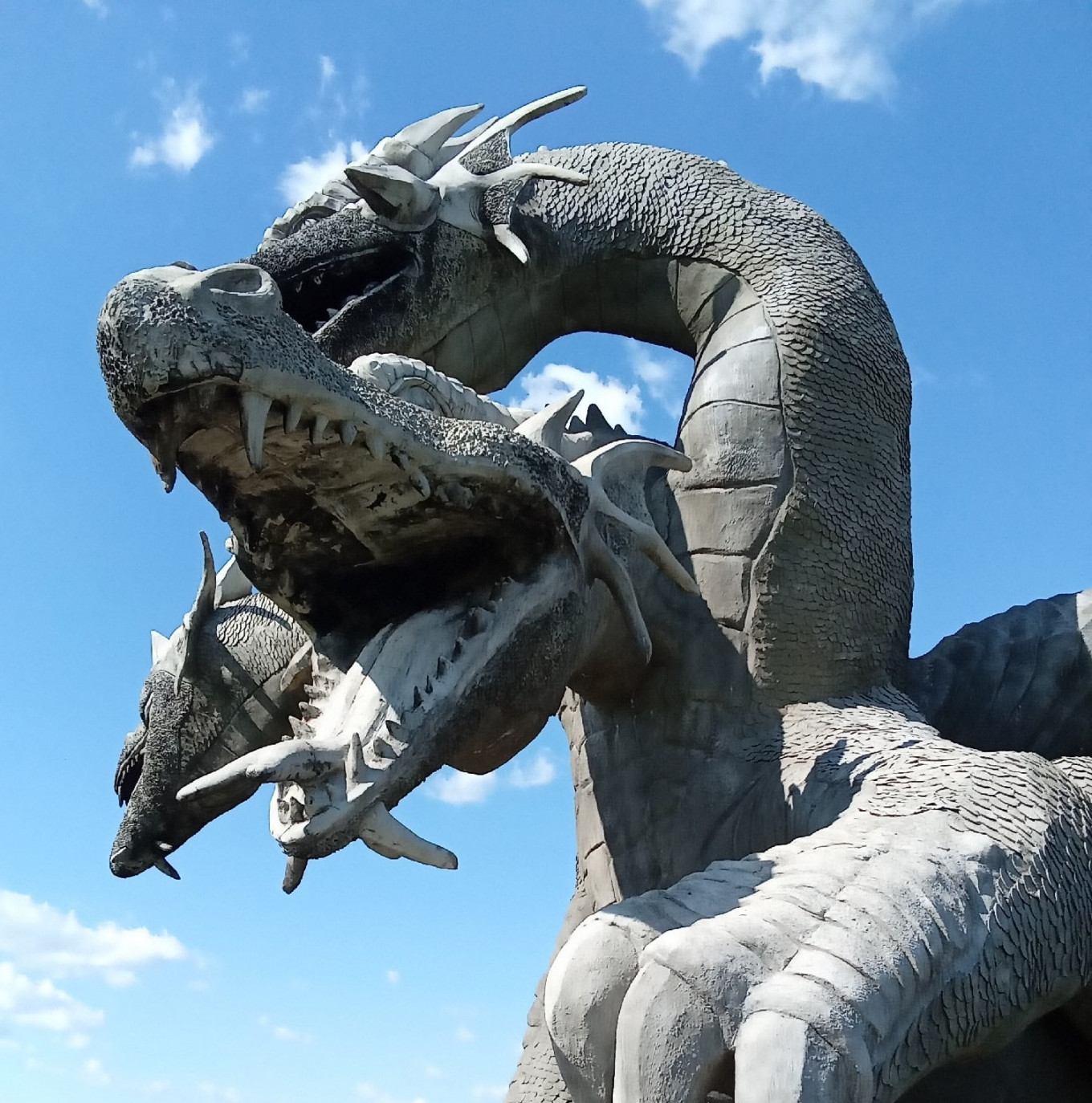
On the way to Yelets, a town that is one year older than Moscow, be sure to stop and see the Vorgol Rocks that are often called “Russian Switzerland” or “Yelets Alps.” This is a complex of picturesque natural attractions, a part of the reserve called Galichya Gora. Long ago this was part of the estate of the wealthy Yelets merchant Ivan Taldykin, who owned several shops that sold imported silks, teas, spices, and other rare goods. Today the estate is a private property and is not, unfortunately, being restored. If you are curious, just pay the security guard about 100 rubles ($1.5), and he'll let you in to walk around the ruins and feel melancholic.
Spend the night at the Yelets Hotel, situated in the historical center of the town near the main sights. The cost of a single room is about 1,000 rubles ($14) per night.
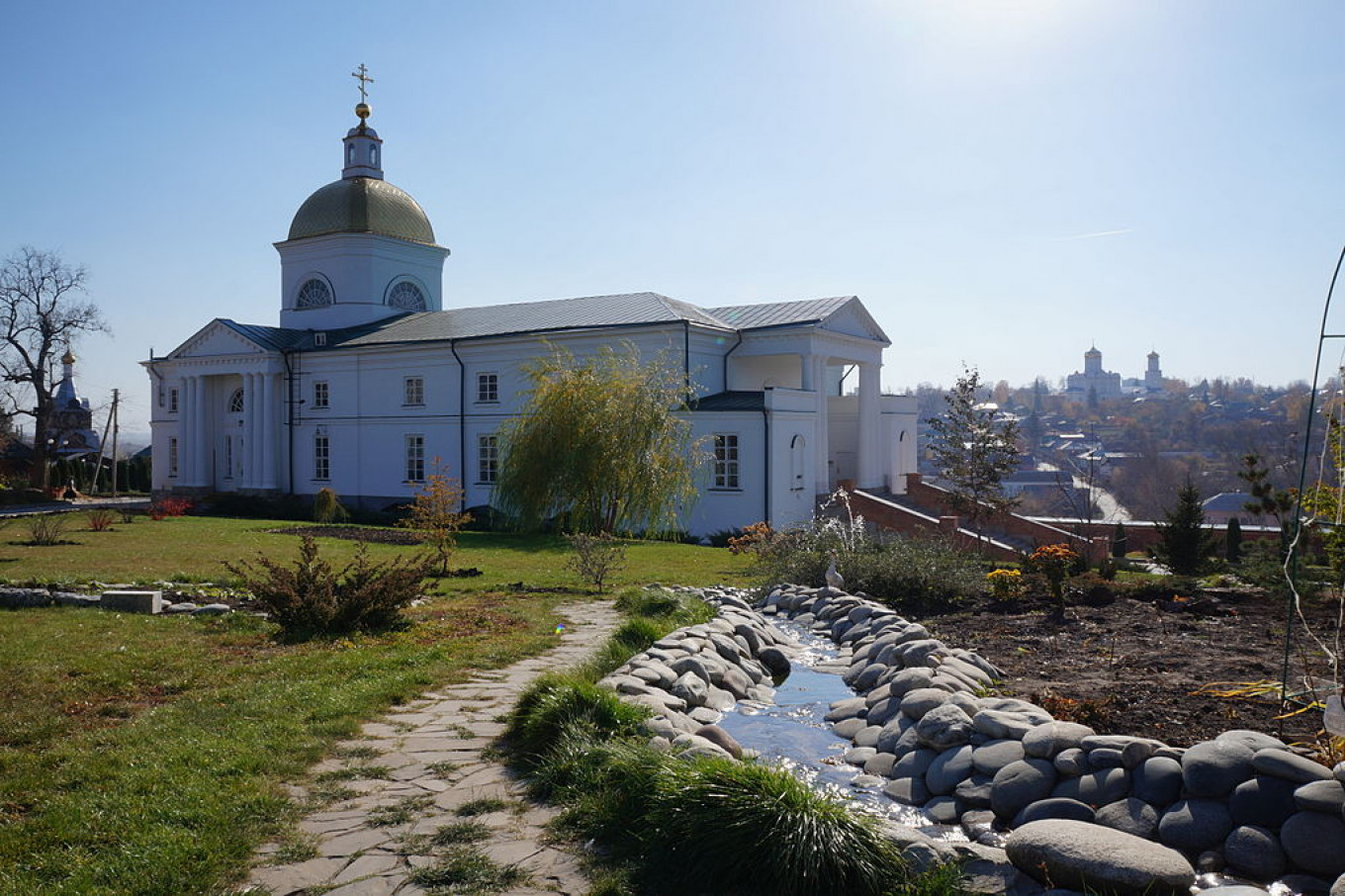
Day 3: Yelets and Dankov
In the morning, take a walk around Yelets. Why, you ask? To see a town where the houses of members of the merchant guilds have been preserved, a town with more than 30 churches for a population about 100,000. You’ll immediately understand why Yelets is called the “city of churches.” The main church is the Ascension Cathedral, designed by Konstantin Ton, who also designed the Cathedral of Christ the Savior in Moscow. Not all of churches are in good condition; many are in dire need of restoration. But still, they make a magnificent impression.
On Ulitsa Mira, called “Yelets Arbat” because it is the main pedestrian street, the best bargain is one of two pizza parlors: Pizzeria Milano or Pizzeria Tomato. At the time of publication, they are also only doing take-out, but there are plenty of benches around for pizza-munching. The average main is 150 rubles ($2) and 600 rubles ($8) respectively.
Hopefully, the most interesting museum in Yelets will be open again this summer: the Ivan Bunin Literary and Memorial Museum, located in the house where the writer lived for more than three years while studying at the Yelets gymnasium. There are documents, personals, autographed books, and a great deal of memorabilia. Contact the museum before your trip to see if it is open to visitors.
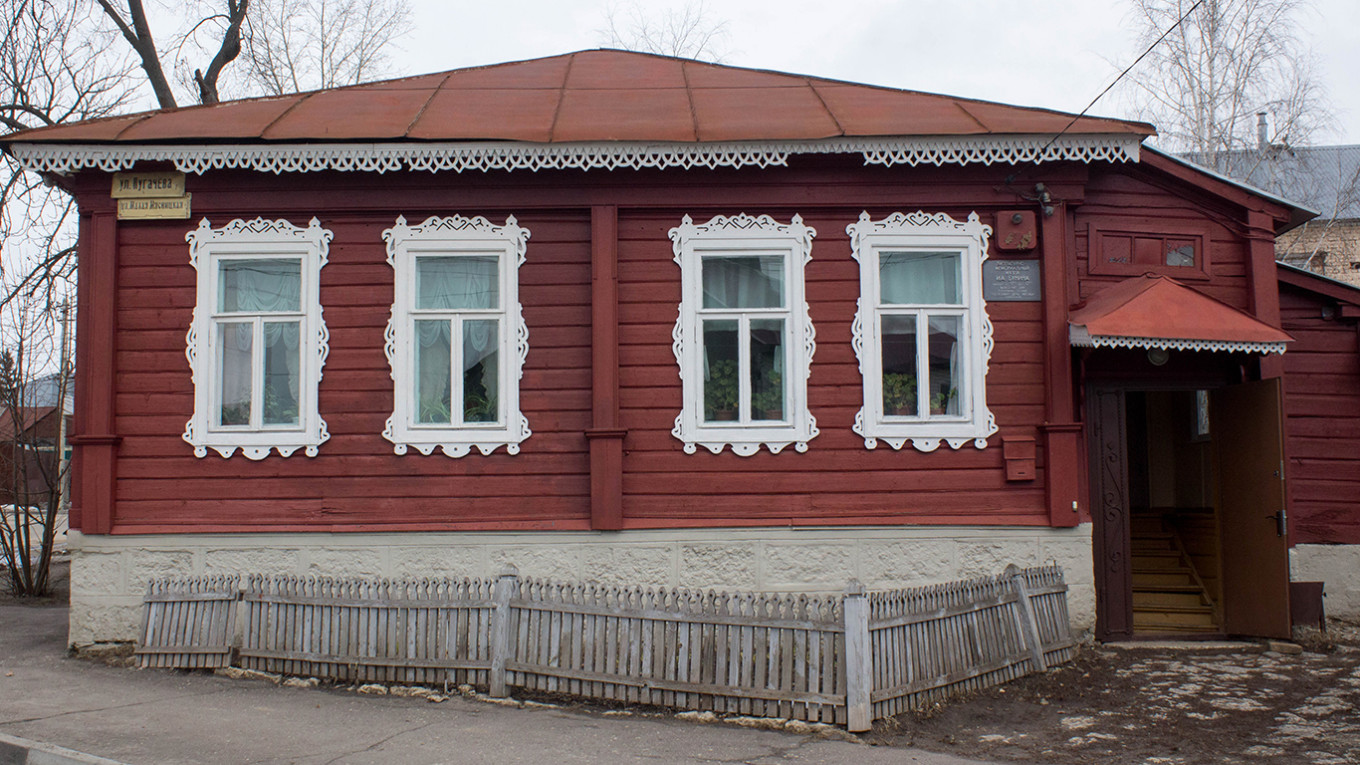
On the way out of Yelets and back on the M4 to Moscow, take small detour to see the Muromtsevo Estate in Balovnevo. Although the main house was destroyed, the beautiful Church of the Vladimir Icon of the Mother of God, designed by the architect Vasily Bazhenov in the style of early classicism, has been preserved. A large rotunda is balanced by two high symmetrical bell towers and connected to them by a large refectory. Enjoy the view and then drive back to the M4 and home to the capital.
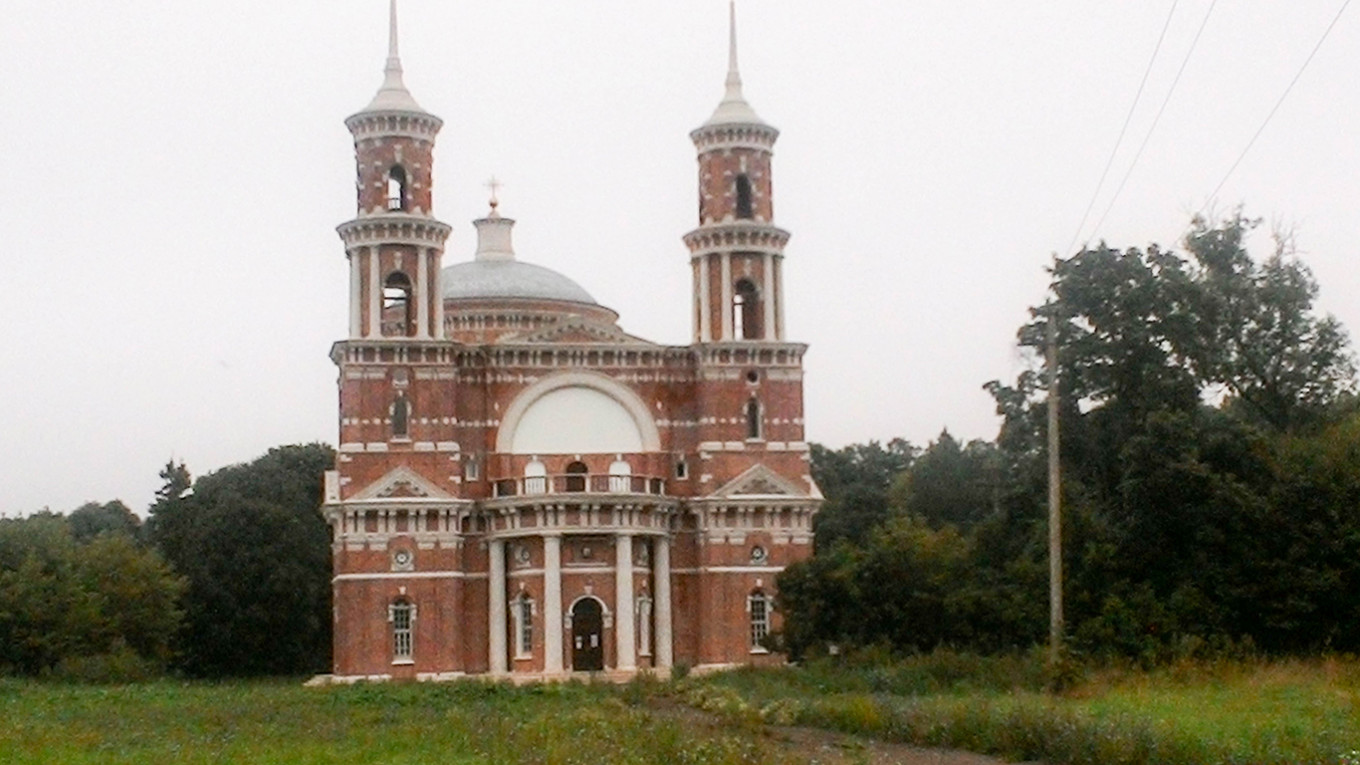
A Message from The Moscow Times:
Dear readers,
We are facing unprecedented challenges. Russia's Prosecutor General's Office has designated The Moscow Times as an "undesirable" organization, criminalizing our work and putting our staff at risk of prosecution. This follows our earlier unjust labeling as a "foreign agent."
These actions are direct attempts to silence independent journalism in Russia. The authorities claim our work "discredits the decisions of the Russian leadership." We see things differently: we strive to provide accurate, unbiased reporting on Russia.
We, the journalists of The Moscow Times, refuse to be silenced. But to continue our work, we need your help.
Your support, no matter how small, makes a world of difference. If you can, please support us monthly starting from just $2. It's quick to set up, and every contribution makes a significant impact.
By supporting The Moscow Times, you're defending open, independent journalism in the face of repression. Thank you for standing with us.
Remind me later.


